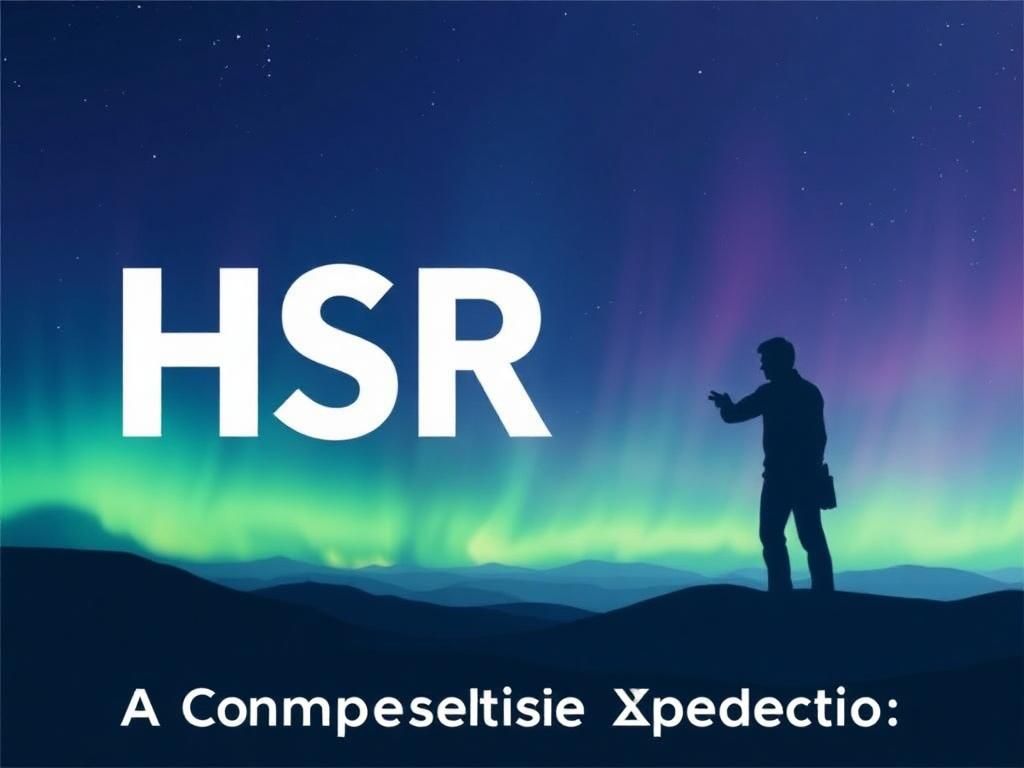The concept of HSR Oneric Do has emerged as a pivotal point of discussion across various fields, capturing the interest of academics, professionals, and curious minds alike. It refers to an umbrella of principles and methodologies that advocate for innovative approaches to problem-solving and development. In this article, we will delve into the definition of HSR Oneric Do, explore its origins and core principles, discuss its applications and societal impacts, and consider the challenges it faces. Aiming to equip readers with valuable insights, this article will be a thorough examination of what HSR Oneric Do entails and its relevance in our contemporary world.
Background Information
Origins of HSR Oneric Do
The origins of HSR Oneric Do date back to several groundbreaking events and figures that shaped its development. Emerging from interdisciplinary research and practice, this concept draws upon fields such as psychology, social studies, and technology. The historical context includes moments where traditional practices were found lacking, prompting thinkers and practitioners to forge new paths. For instance, the rise of collaborative methodologies and integrative thinking in the late 20th century paved the way for HSR Oneric Do, as experts began to realize the importance of holistic approaches to complex problems.
Related Concepts and Terminology
Within the domain of HSR Oneric Do, various key terms surface frequently. Understanding these terms is crucial for grasping the full scope of the concept. Terms like “collaborative innovation” and “integrative thinking” are often used interchangeably with HSR Oneric Do. Moreover, HSR Oneric Do can be juxtaposed with similar strategies such as Agile methodology, which focuses on adaptive planning and iterative development processes. Identifying these relationships provides a clearer picture of where HSR Oneric Do stands within the wider context of organizational and developmental strategies.
Core Principles of HSR Oneric Do
Underlying Theories and Frameworks
At the foundation of HSR Oneric Do lies a combination of theories that inform its practice. Key theories include systems thinking, which emphasizes understanding the whole rather than merely individual components, and constructivist learning theory, which advocates learning as an active, contextualized process. By applying these theories, practitioners can craft solutions that are not only effective but also sustainable over the long term.
Key Components
A comprehensive understanding of HSR Oneric Do demands an exploration of its core components. These include holistic problem-solving strategies, integrative approaches to collaboration, and a commitment to continual learning and adaptation. Each of these elements interconnects and reinforces the others, thus establishing a robust framework that enables organizations to navigate complex challenges successfully.
Applications of HSR Oneric Do
Practical Uses Across Industries
HSR Oneric Do has found diverse applications across several industries, making it a versatile concept. For example, in the field of healthcare, organizations have adopted HSR Oneric Do to improve patient outcomes through collaborative care models. Similarly, educational institutions employ these principles to foster environments that prioritize student engagement and meet diverse learning needs. Case studies indicate that businesses utilizing HSR Oneric Do principles have reported increased innovation, efficiency, and employee satisfaction.
Impacts on Society and Culture

The societal implications of HSR Oneric Do are profound. As organizations embrace this framework, the ripple effects can be observed in community interactions and cultural shifts. HSR Oneric Do promotes values such as collaboration and inclusivity, reshaping how individuals and groups communicate and work together. This shift fosters stronger community ties and encourages a culture of shared responsibility and innovation.
Challenges and Limitations
Common Obstacles in Implementation
Despite the advantages that HSR Oneric Do offers, there are common obstacles to its effective implementation. These barriers can include resistance to change, lack of understanding among stakeholders, or insufficient training in the methodological approaches required. Real-world scenarios illustrate these challenges; for instance, organizations often struggle to transition from traditional hierarchical models to more collaborative frameworks without facing pushback.
Ethical Considerations
Engaging with HSR Oneric Do raises important ethical considerations that merit discussion. Issues of equity, participation, and transparency often come to the forefront. It is essential for organizations to establish guidelines and frameworks that ensure ethical practices when implementing these methodologies to safeguard against potential misuse or exploitation. Proposed solutions include ongoing ethics training and the establishment of advisory committees focused on equity and inclusion.
Future Trends in HSR Oneric Do
Emerging Technologies and Innovations
Looking forward, the intersection of HSR Oneric Do with emerging technologies is poised to enhance its effectiveness dramatically. Technologies such as artificial intelligence (AI), machine learning, and big data analytics can provide valuable insights that facilitate decision-making processes within HSR Oneric Do frameworks. Predictions suggest that these advancements will not only streamline operations but also foster a new wave of innovative problem-solving capabilities.
Evolving Perspectives and Theories
As the understanding of HSR Oneric Do evolves, so too will the theories that underpin it. Changes in societal needs, technological advancements, and cultural shifts will influence how professionals approach HSR Oneric Do in the future. Several factors, such as globalization and the rise of remote collaborations, will play significant roles in shaping these future views.
Conclusion
Summary of Key Points
Throughout this exploration of HSR Oneric Do, we’ve uncovered its definition, historical context, and critical principles. Its applications across industries showcase its versatility and societal impact, while recognizing the challenges and ethical considerations further enrich our understanding of the concept.

Call to Action
We encourage readers to engage deeply with the concepts presented in this article. Explore further reading materials to enhance your knowledge and understanding of HSR Oneric Do. Consider joining relevant online communities to participate in discussions and collaborative learning opportunities centered around this innovative framework.
References and Further Reading
– [Harvard Business Review on Collaborative Innovation](https://hbr.org)
– [A Guide to Systems Thinking](https://www.systemsthinking.co.uk)
| Key Component | Description | Industry Application |
|---|---|---|
| Holistic Problem-Solving | Considers multiple perspectives to find effective solutions | Healthcare, Education |
| Integrative Collaboration | Brings together diverse stakeholders to enhance creativity | Technology, Nonprofits |
| Continual Learning | Encourages adaptive strategies based on evolving knowledge | Business Development, Marketing |
FAQ
What is HSR Oneric Do?
HSR Oneric Do is a comprehensive framework focusing on innovative and collaborative problem-solving methods across various fields.
How can HSR Oneric Do be applied in healthcare?
In healthcare, HSR Oneric Do can improve patient care by integrating collaborative practices among healthcare professionals.
What are the main challenges in implementing HSR Oneric Do?
Common challenges include resistance to change and inadequate training among team members for the new methodologies.
Is HSR Oneric Do applicable in educational settings?
Yes, educational institutions can apply HSR Oneric Do to enhance student engagement and foster collaborative learning environments.
What ethical considerations arise with HSR Oneric Do?
Issues of equity, participation, and transparency are central ethical concerns, necessitating careful guidelines for practice.
Can technology improve HSR Oneric Do practices?
Yes, emerging technologies like AI and big data can provide insights that enhance problem-solving within the HSR Oneric Do framework.
How does HSR Oneric Do impact community interactions?
HSR Oneric Do promotes collaboration and inclusivity, fostering stronger community ties and enhancing social responsibility.
What are some industries utilizing HSR Oneric Do?
Industries such as healthcare, education, and technology are actively implementing HSR Oneric Do methodologies to improve outcomes.
What future trends are expected for HSR Oneric Do?
Future trends may include increased integration with technology and evolving theoretical frameworks to meet societal demands.
What is the significance of continual learning in HSR Oneric Do?
Continual learning cultivates adaptability and responsiveness to changing information and environments, crucial for effective problem-solving.